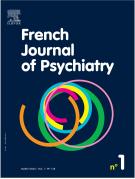Euthanasia: Should psychiatric patients be systematically excluded? - 10/09/21
 , Philippe Courtet a, b
, Philippe Courtet a, bSummary |
An increase of the number of psychiatric patients requesting euthanasia or assisted suicide (EAS) has been reported in countries practicing EAS. The debate raised by EAS invites psychiatrists to think about their role in this societal issue. If euthanasia for patients with unbearable somatic suffering is the subject of fierce ethical debate, the debate is even fiercer in cases of unbearable psychiatric suffering. In this manuscript, we discuss 3 main points concerning EAS for psychiatric patients. First, we question the notion of irreversibility of the condition and the related medical futility. Second, we focus on the capacity to make informed decisions in such situations. Third, we ask whether psychiatric EAS should be considered as a copycat of traditional suicide or an additional therapeutic alternative. Psychiatrists should produce practice guidelines to be involved in the EAS debate and develop research programs.
Le texte complet de cet article est disponible en PDF.Keywords : Euthanasia, Assisted suicide
Plan
Vol 2
P. 55-57 - décembre 2020 Retour au numéroBienvenue sur EM-consulte, la référence des professionnels de santé.
L’accès au texte intégral de cet article nécessite un abonnement.
Déjà abonné à cette revue ?

